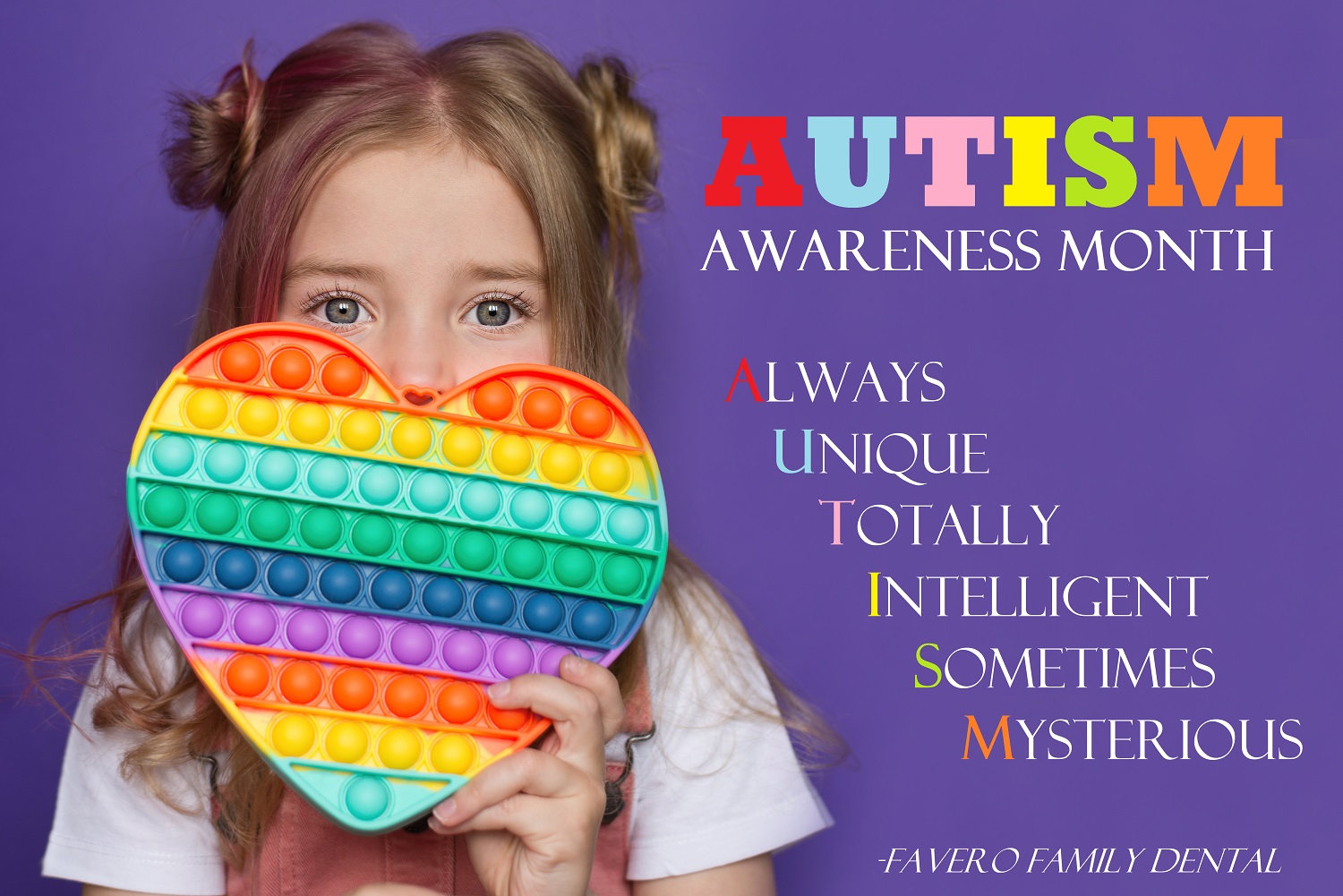
Autism Awareness Month
Autism spectrum disorder (ASD) is a developmental disability caused by differences in the brain. People with ASD may behave, communicate, interact, and learn in ways that are different from most other people.
Autism varies widely in symptoms and severity. Some people with this disorder may appear distant, aloof, or detached from other people or from their surroundings. Others do not react to common verbal and social cues, such as a family members tone of voice, or smile.
People with autism experience few unusual oral health conditions. Although commonly used medications and damaging oral habits can cause problems, the rates of caries and periodontal disease in people with autism are comparable to those in the general population. Communication and behavioral problems pose the most significant challenges in receiving oral health care.
Damaging Oral Habits are common and include bruxism; tongue thrusting; self-injurious behavior such as picking at the gingiva or biting the lips; and pica – eating objects and substances such as gravel, chalk, dirt or pens. If a mouth guard can be tolerated, it is very effective in controlling this type of behavior.
Dental Caries risk increases in patients who have a preference for soft, sticky or sweet foods; damaging oral habits; and difficulty brushing and flossing. Here are some additional tips for limiting the risk of dental caries.
- Use fluorides and sealants for preventative measure.
- Be aware of medications that reduce saliva or contain excess sugar. Encourage frequent water drinking, taking sugar-free medicines when possible, and rinsing your mouth with water after taking medications.
- Try to avoid sugary or starchy foods as incentives or rewards.
- Encourage independence in daily oral hygiene. Practice the best way to clean their teeth. If appropriate, using a modified toothbrush or floss holder might make oral hygiene easier.
- When brushing or flossing independently is not possible, ensure caregivers understand the proper daily oral hygiene routine, including care while sitting and standing. Try to use the same location, time and position each day.
Periodontal Disease occurs in people with autism in much the same way it does in persons without developmental disabilities. It is important to keep routine dental exams and cleanings as recommended by your dentist. The normal recommendation is 2 times a year, but some do require more frequent cleanings. Antimicrobial mouth rinses may also be a benefit in preventing periodontal disease.
Tooth Eruption may be delayed due to phenytoin-induced gingival hyperplasia. Phenytoin is commonly prescribed for people with autism.
Trauma and Injury to the mouth from falls or accidents occur in people with seizure disorders. Traumas require immediate professional attention.
Leave a reply →